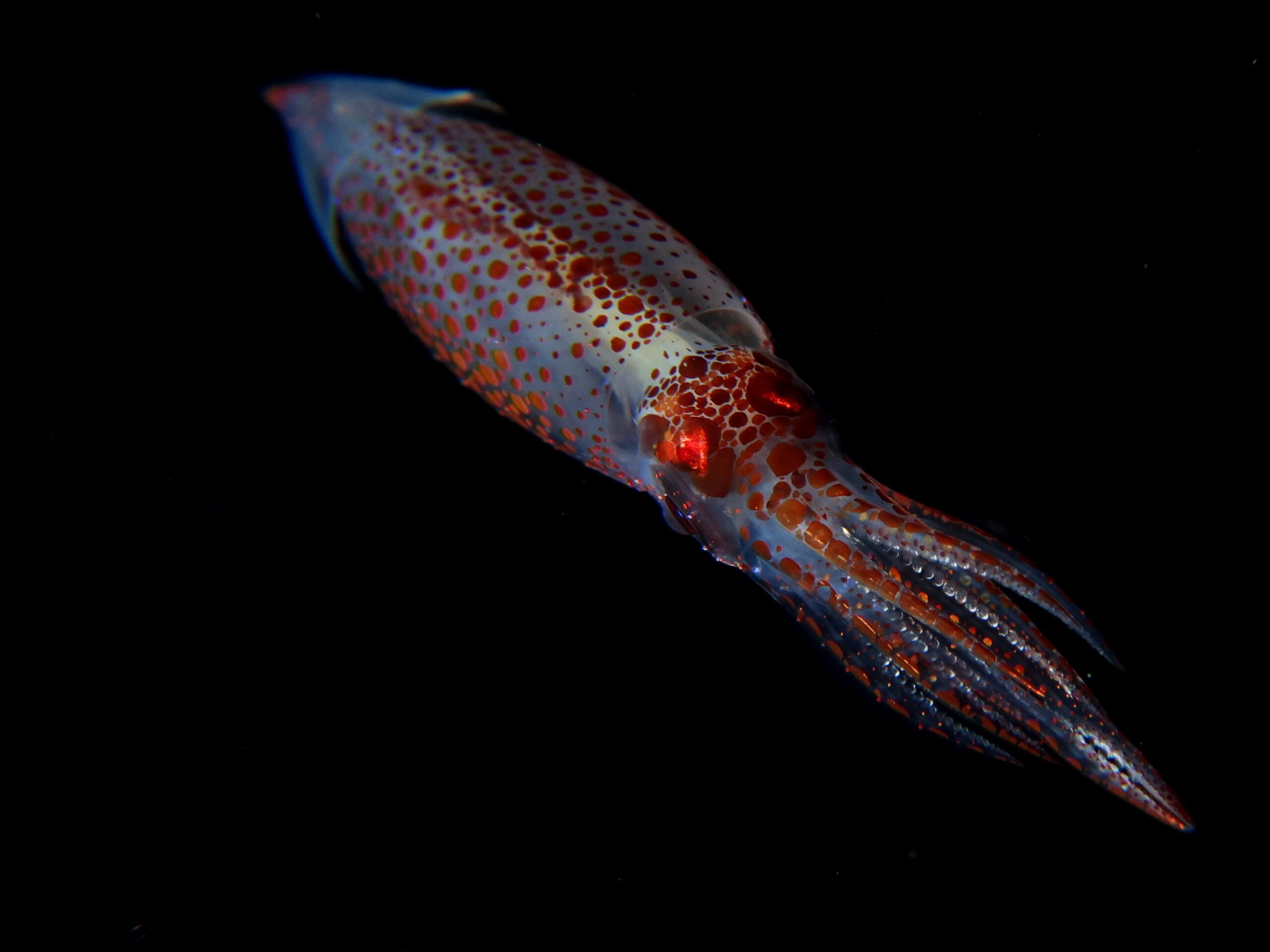
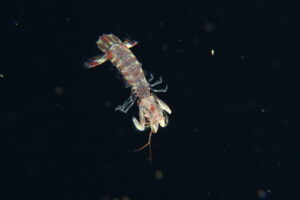
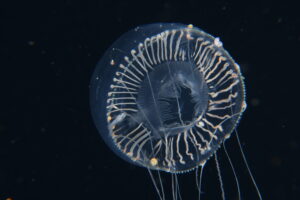
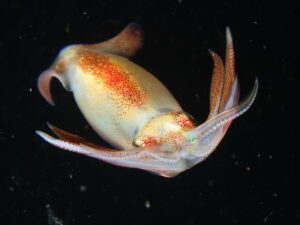
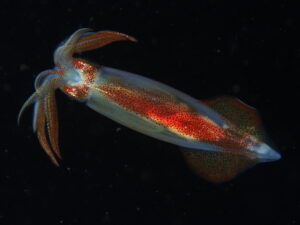
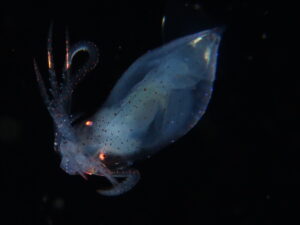 Black water diving is a type of nighttime SCUBA diving that involves exploring open ocean waters over deep abysses or trenches. Unlike traditional SCUBA diving where you explore reefs or wrecks, black water diving takes place in the open ocean, often far from land, where divers are suspended in the water column, drifting with the currents. The bottom can be many hundreds or even thousands of meters / feet below. There is effectively no bottom so exceptional buoyancy and situational awareness are critical.
Black water diving is a type of nighttime SCUBA diving that involves exploring open ocean waters over deep abysses or trenches. Unlike traditional SCUBA diving where you explore reefs or wrecks, black water diving takes place in the open ocean, often far from land, where divers are suspended in the water column, drifting with the currents. The bottom can be many hundreds or even thousands of meters / feet below. There is effectively no bottom so exceptional buoyancy and situational awareness are critical.
During black water dives, divers typically descend to depths ranging from a few meters / feet to rarely more than 30 meters / 100 feet, where they encounter a diverse array of marine life that ascends from the depths toward the surface at night. These organisms include various planktonic creatures such as jellyfish, larval fish, squid, and other invertebrates.
The term “black water” refers to the dark, deep waters where these dives take place, which offer unique opportunities to observe and photograph bioluminescent organisms and other fascinating marine life forms that are not commonly encountered during daytime dives.\
Black water diving requires specialized equipment and techniques due to the remote and often challenging conditions of open ocean environments. Divers must be highly skilled and experienced, as well as properly trained in night diving and buoyancy control to safely navigate and enjoy these unique underwater experiences.
Black water diving is done from a boat where a line is dropped into the water. This line is usually about 30 meters / 100 feet in length. Along this line, lights are mounted at depth increments of 10 meters / 30 feet (sometimes more, sometimes less) it all depends on the dive operator. These lights have two purposes, the primary one is to draw in plankton that the creatures you are trying to experience will feed on. The second purpose (and perhaps the most important) is to provide a reference for the divers to know where the line is and their depth relative to the lights.
Again, depending on the operator, you may be tethered to this line as it drifts or you may be free of the line to move about as you desire. Whether you are tethered or not will be the discretion of the crew and based on your experience, the sea state and their local policies. Obviously, if you are free to “roam’’, you need to be in CONSTANT site on of the lights on the line. If the visibility is poor and you drift away from the lights, you can get into trouble in a hurry. Exceptional buoyancy is a must!
1. Limited Visibility: One of the primary dangers of black water diving is the limited visibility. In open ocean waters, especially at night, visibility can be severely restricted. Divers may find it challenging to see potential hazards, other divers, or marine life, increasing the risk of accidents or getting lost.
2. Currents: Open ocean environments can experience strong currents, which can pose a risk to divers, particularly if they are not adequately prepared or experienced in managing such conditions. Strong currents can cause divers to become separated from their group or drift away from the down line.
3. Marine Life Encounters: While black water diving offers the opportunity to observe unique and often bizarre marine creatures, encounters with certain species can be hazardous. Some marine animals found in open ocean waters can be venomous or aggressive. Without proper knowledge and precautions, divers may inadvertently provoke dangerous encounters.
4. Depth: Black water diving often takes place over deep waters where the ocean floor is not visible. Diving to significant depths increases the risk of decompression sickness, nitrogen narcosis, and other diving-related injuries if proper safety protocols are not followed.
5. Equipment Failure: As with any type of diving, equipment failure can occur during black water dives. In the darkness and potentially adverse conditions of open ocean waters, equipment malfunctions can escalate quickly and may be more challenging to address.
To mitigate these risks, it’s essential for black water divers to undergo specialized training, possess appropriate certifications, and dive with experienced guides who are familiar with the specific challenges of this type of diving. Additionally, divers should always adhere to safety protocols, maintain good communication with their dive team, and be prepared to respond effectively to emergencies.
If you have any questions, comments or suggestions – PLEASE don’t hesitate to contact us.